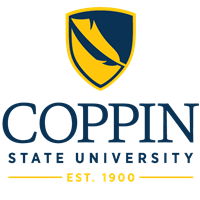Below is a summary of the abstract you submitted. Presenting author(s) is shown in bold.
If any changes need to be made, you can modify the abstract or change the authors.
You can also download a .docx version of this abstract.
If there are any problems, please email Dan at dar78@pitt.edu and he'll take care of them!
This abstract was last modified on March 22, 2024 at 11:10 a.m..

Bacteriophages are diverse and abundant across ecological landscapes. The Mycobacterium phage Delphidian was found in 2023 in Philadelphia, Pennsylvania at Drexel University as part of the SEA-PHAGES (Science Education Alliance-Phage Hunters Advancing Genomics and Evolutionary Science) Discovery course. DNA Sequencing was completed at the Pittsburgh Bacteriophage Institute. Coppin State University undergraduate students (Baltimore, MD) enrolled in a Principles of Genetics course (spring 2024) have utilized multiple bioinformatic tools to annotate the Delphidian genome. The Delphidian genome is 41,595 base pairs which code for 64 genes and one tRNA. This relatively small genome and the use of well-established tools have provided a stringent annotation workflow. Utilizing DNAMaster, Starterator, Phamerator, and Phage Evidence Collection And Annotation Network (PECAAN) collectively with resources based on The Actinobacteriophage Database we identify and assign a function to all genes.
